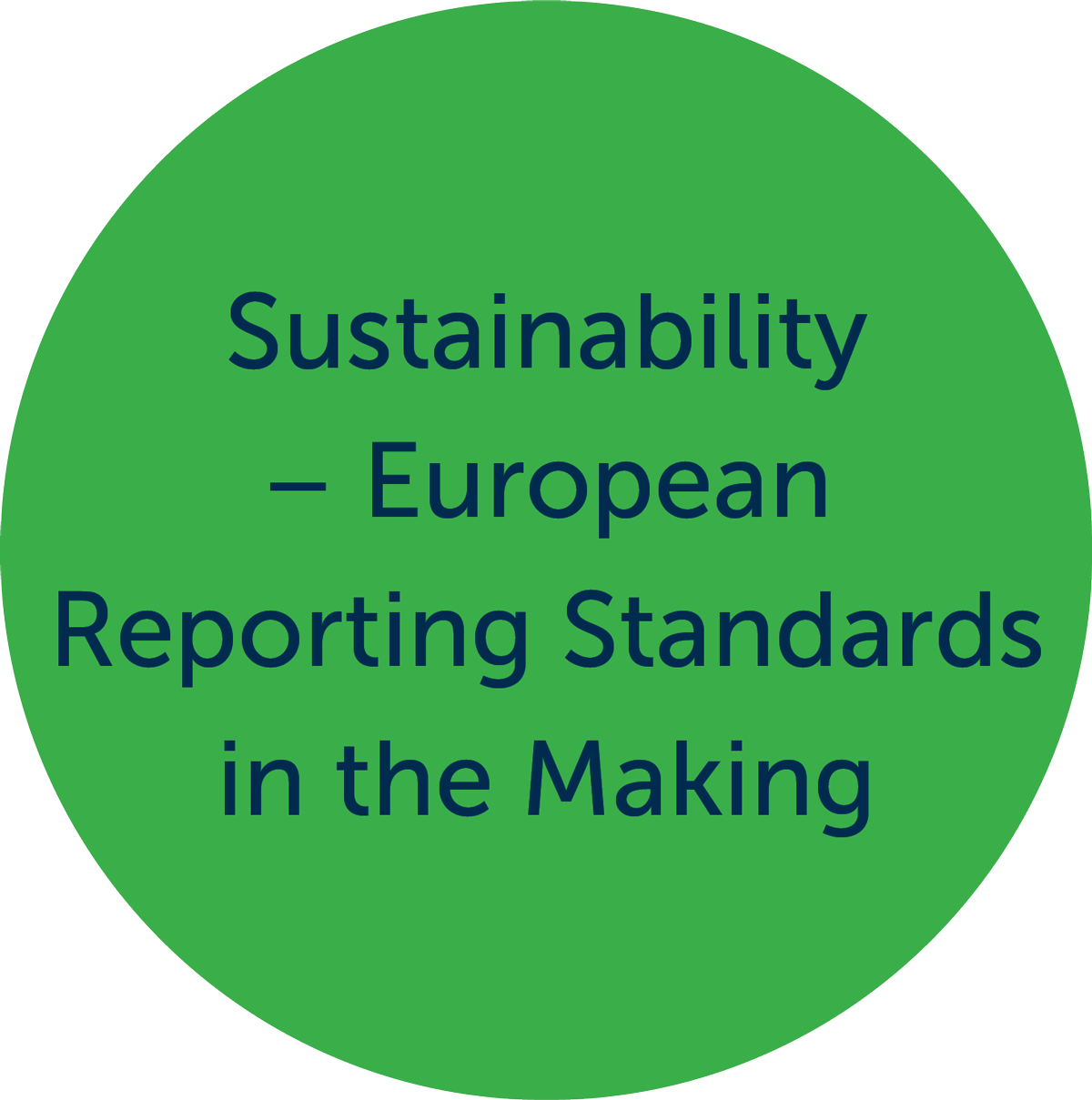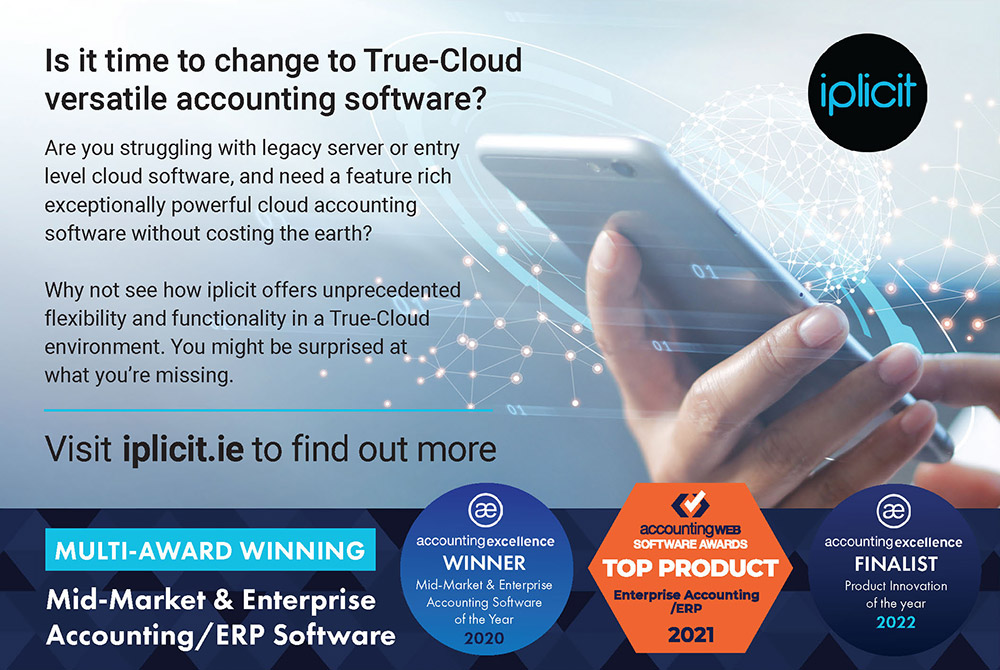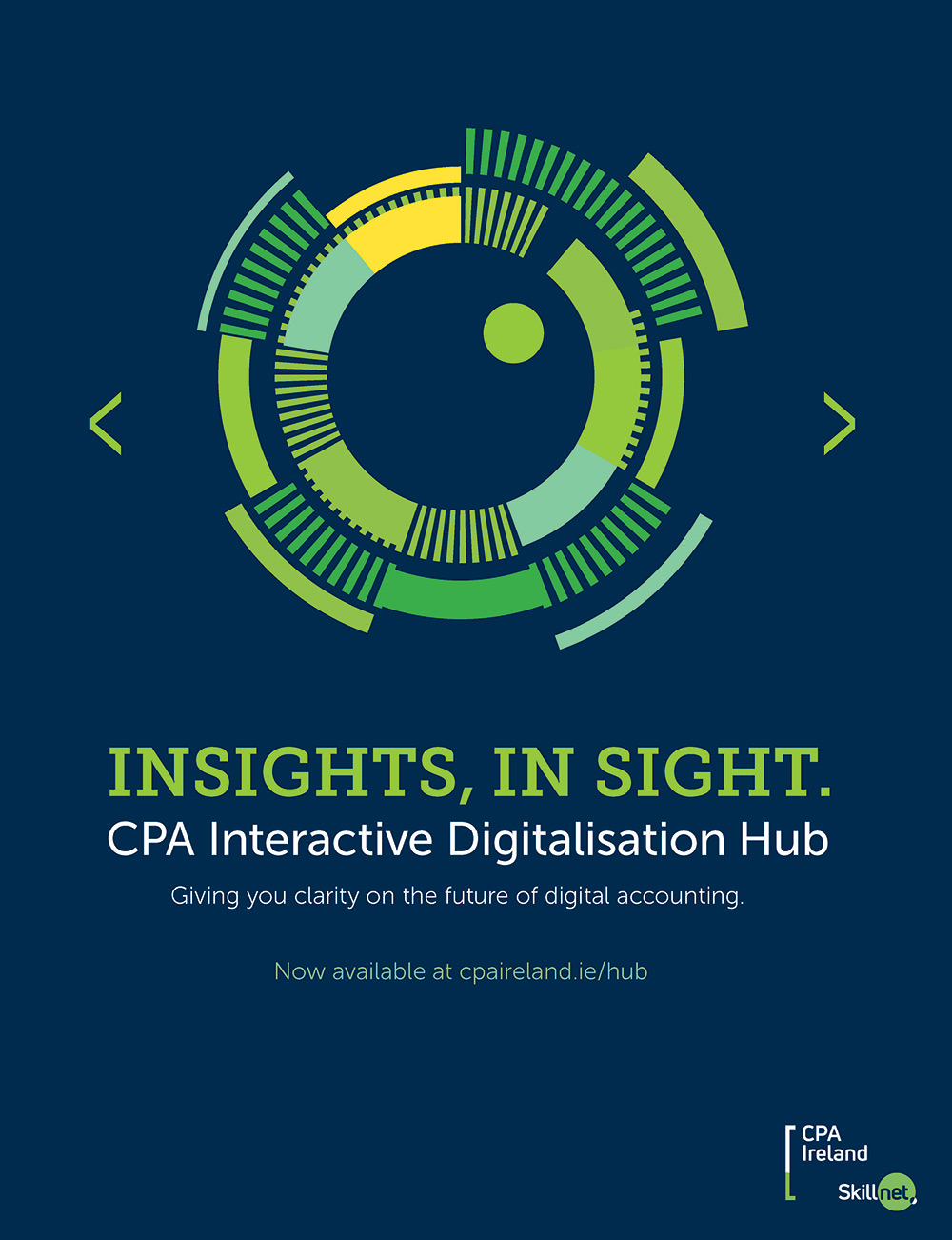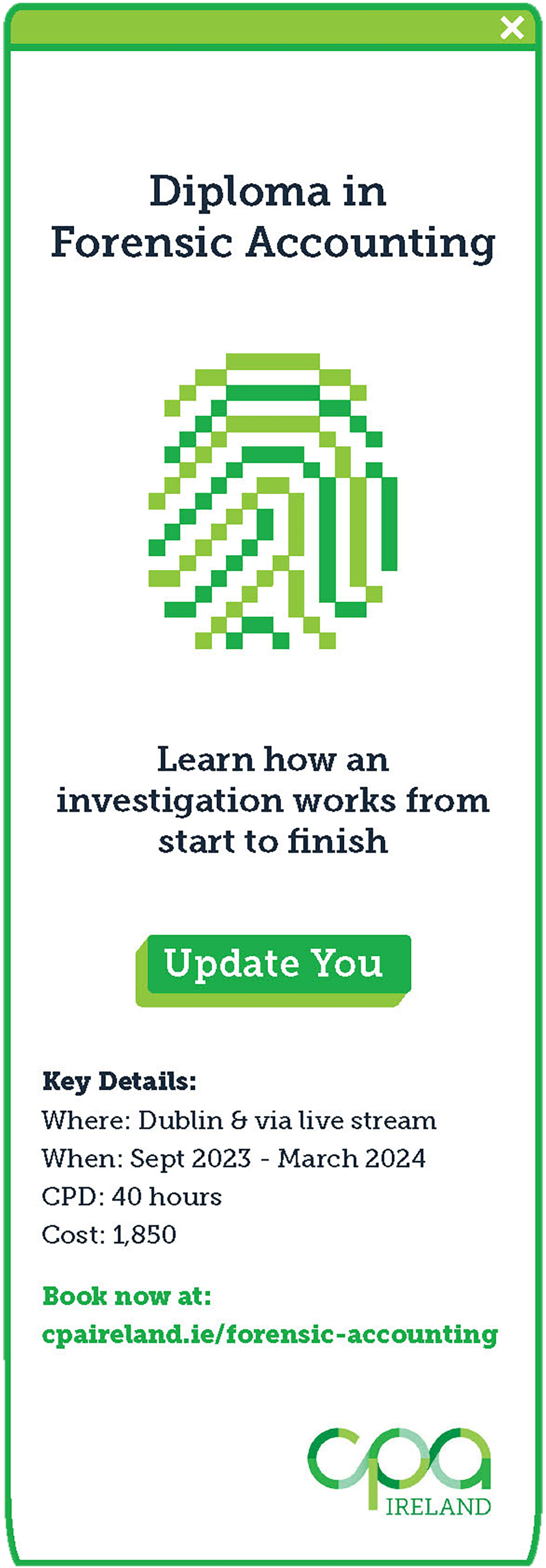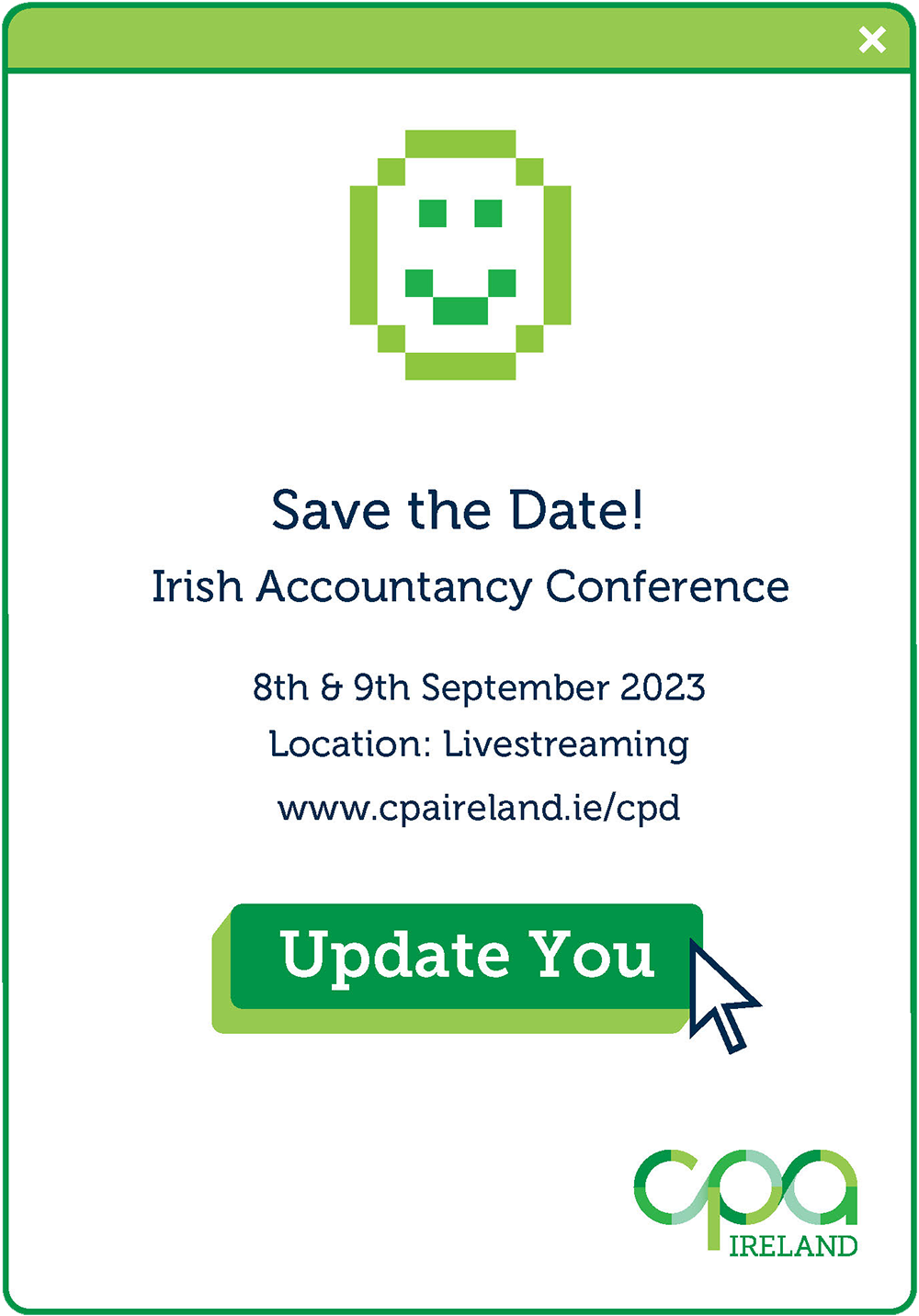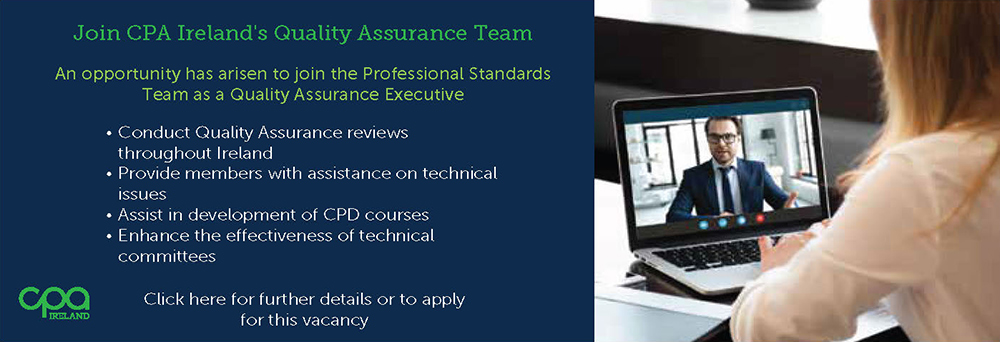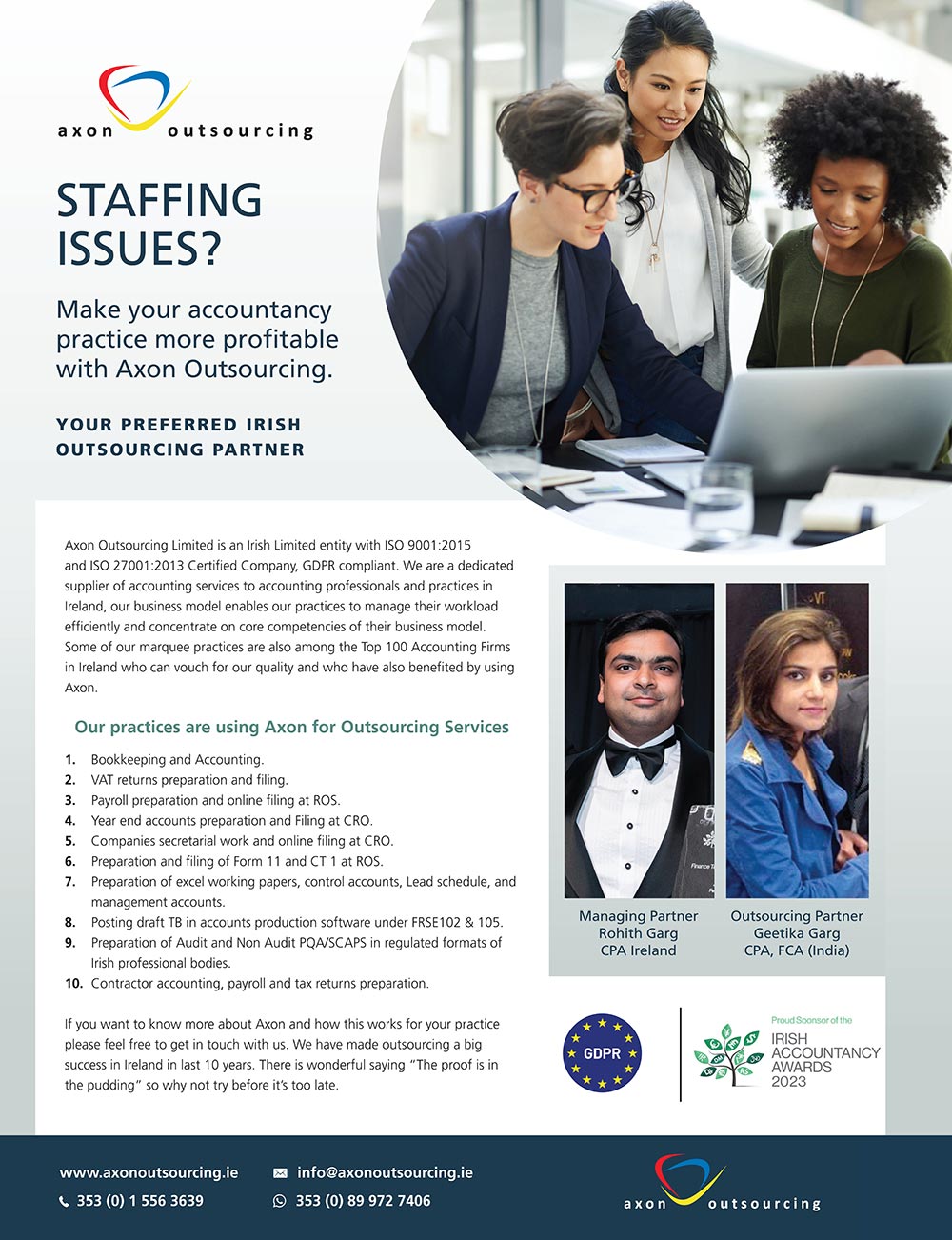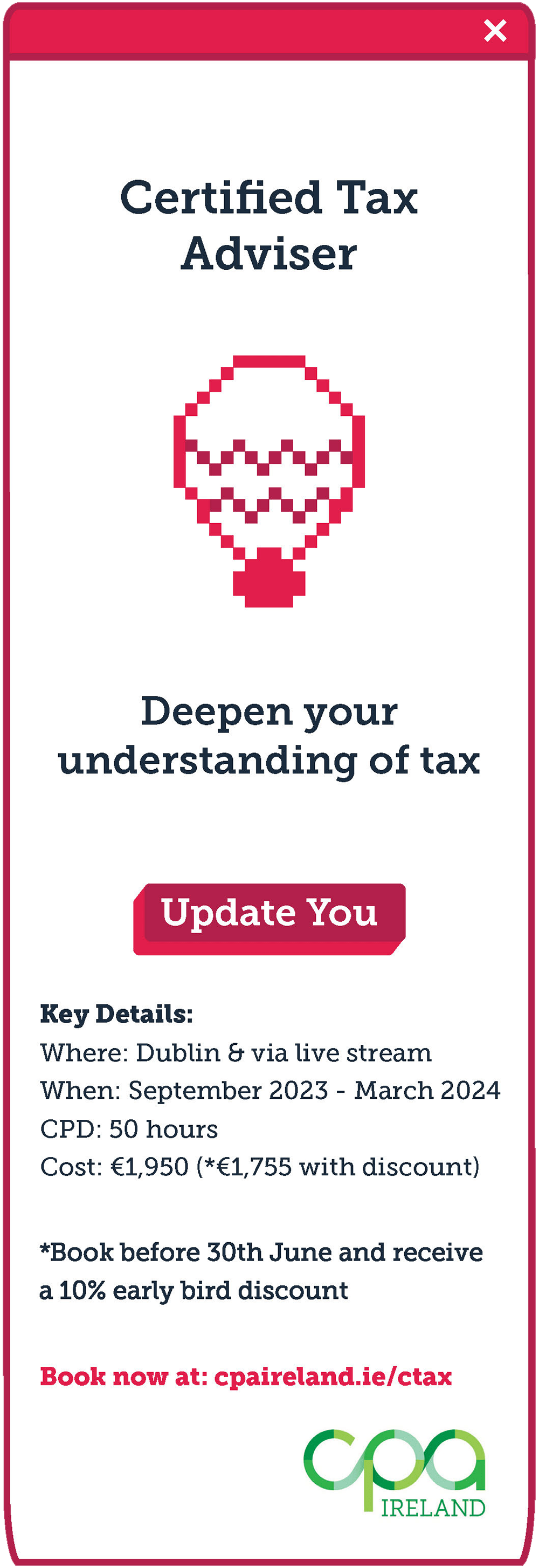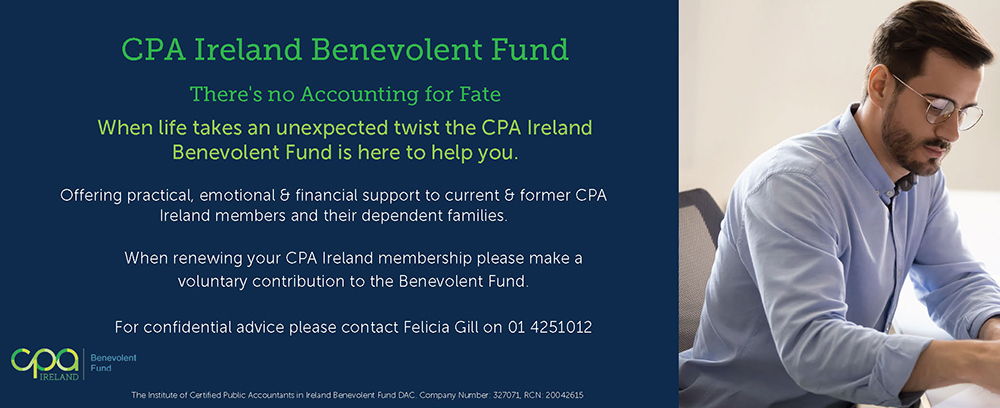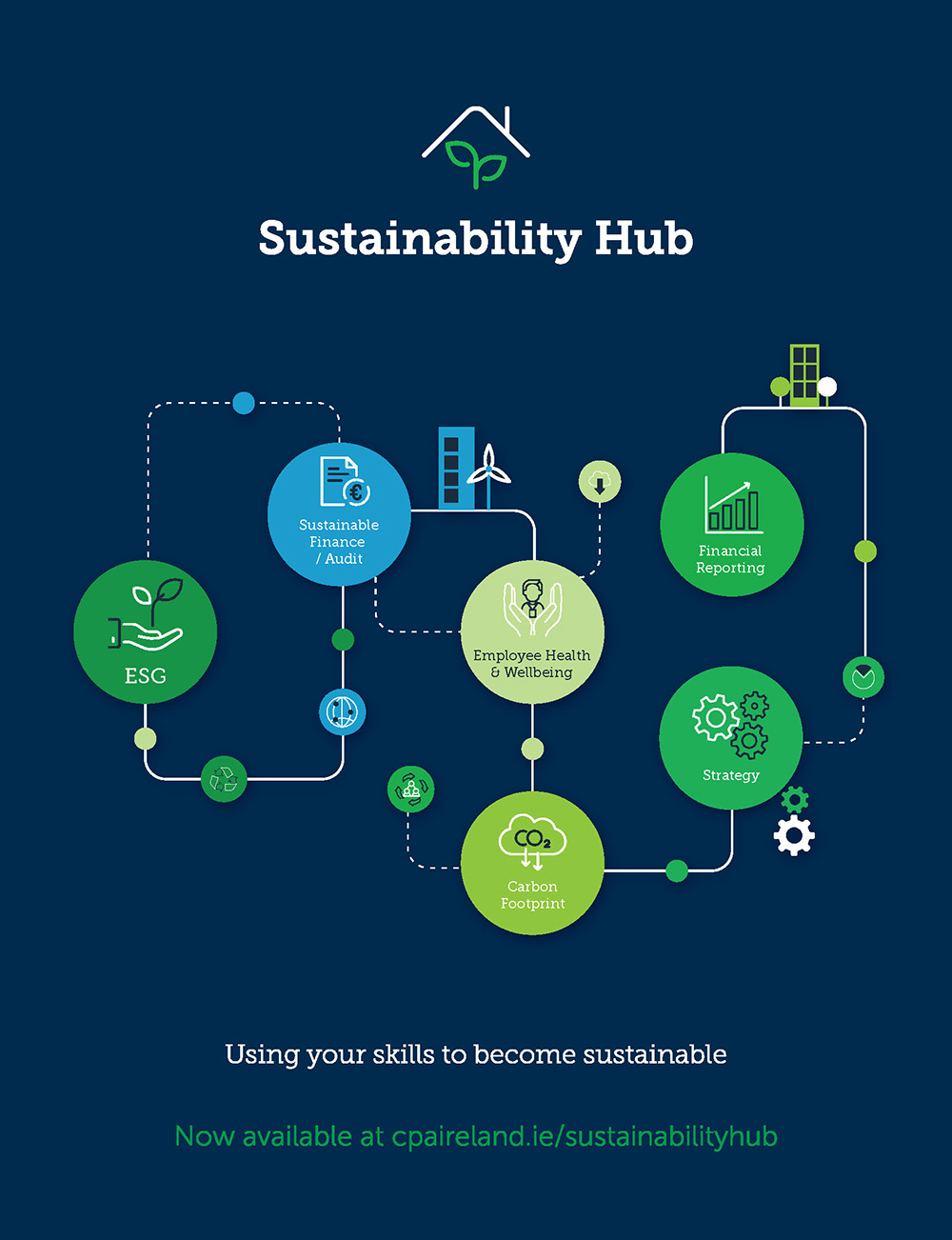June 2023
17 Harcourt Street,
Dublin 2, D02 W963
T: 01 425 1000
F: 01 425 1001
Unit 3,
The Old Gasworks,
Kilmorey Street,
Newry, BT34 2DH
T: +44 (0) 28 3025 2771
W: www.cpaireland.ie
E: cpa@cpaireland.ie
Patricia O’Neill
Chief Executive
Eamonn Siggins
Editorial Adviser
Róisín McEntee
Technical Adviser
Phyllis Willoughby
Ciara Durham
T: 086 852 3463
E: accountancyplus@gmail.com
Published by
Nine Rivers Media Ltd.
E: gary@ninerivers.ie
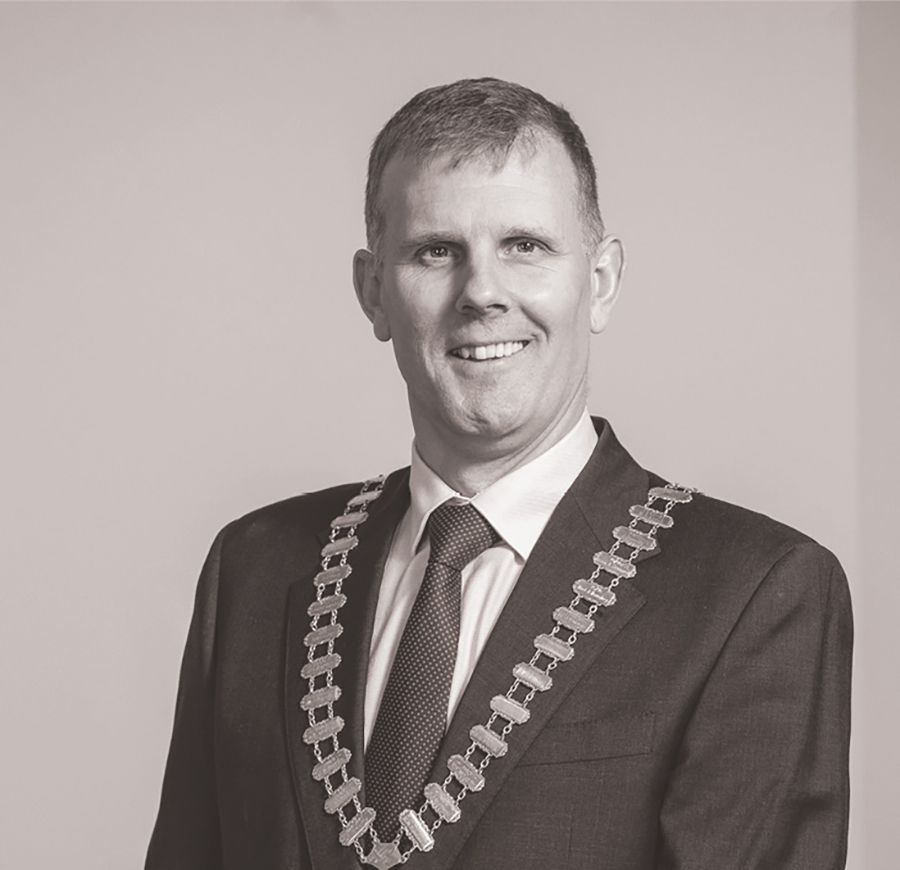
My ambition as President of CPA Ireland is to continue to build on the great foundations laid before me and to serve CPA Ireland to the best of my ability.

CPA Profile

Opinion
An Economic Review The Global Backdrop by Jim Power
The Global Backdrop
There is certainly a sense that anything that could go wrong for the global economy has gone wrong over the past three years. Economic and social life was disrupted to a dramatic extent during the Covid-19 crisis, but just as we were starting to see some light, the illegal Russian invasion of Ukraine on February 24th, 2022, threw everything up in the air again.
It is also the case that after a decade of very low interest rates and significant growth in money supply due to Quantitative Easing (QE), the foundations had been laid for a spike in inflation.
Since peaking in October 2022, headline inflationary pressures have eased, but this is largely due to lower energy prices. Excluding energy, underlying inflationary pressures are still strong. These underlying price pressures include non-energy goods, food prices, the price of a diverse range of services, and wage pressures are building against a background of still-tight labour markets in most countries.
Patrick Magner
Pat Magner

Title: Audit Partner
Company: Mazars
Qualifications: Fellow of Certified Public Accountants & Chartered Tax Advisor
It was after my Junior Cert at St Munchin’s College secondary school in Limerick when I realised that accounting was one of my stronger subjects, and I decided I might be interested in studying Law and Accounting at the University of Limerick.
However, I did not end up getting the CAO points I needed at the time and did an alternative course – a Diploma in Business Studies (Marketing) at HSI Limerick Business School. Accountancy was still one of my stronger subjects in both my Leaving Cert and college and so began my journey in the world of accountancy.
To be honest, I was receiving more exemptions and the timing of the exams suited my needs best.
I then researched the popularity of the CPA qualification compared to other qualifications and realised that the CPA was the primary qualification in the US and other countries, which were all on my bucket list for travel once I qualified. The timing and frequency of the exams also suited me better.
Elaine Reilly
CPA Profile
Elaine Reilly

Title: Principal
Company: Elaine Reilly & Co.
Qualifications: FCPA, BA Finance
FINANCIAL REPORTING
Financial Reporting News
Financial Reporting News

In developing FRED 82, the FRC has considered changes to IFRS Accounting Standards, the IASB’s proposed changes in developing the third edition of the IFRS for SMEs Accounting Standard, stakeholder feedback in response to the FRC’s 2021 request for views, and other developments in corporate reporting.
FRED 83 is based on similar proposals issued by the IASB. To make similar accounting relief and disclosure requirements available in the FRC’s financial reporting standards to a consistent timeframe the FRC in consulting now, rather than waiting for the IASB’s final amendments. However, the FRC intends to consider the IASB’s final amendments when finalising its own proposals.
FINANCIAL REPORTING
Charities Regulator Targeted Compliance Programme by Sinead Spencer
Compliance Programme

Aligning with their core values of Independence, Fairness, Respect, Accountability and Proportionality, the Charities Regulator regulate the charity sector in the public interest to ensure compliance with charity law and support best practice in the governance and administration of charities.
Helen Martin, CEO of the Charity Regulator advises that they are “working to increase public trust and confidence in management and administration of charitable trust and charitable organisations” resulting in the following functions:
European sustainability reporting standards in the making – by Jona Basha
- expands the scope of the companies that fall under these rules;
- introduces a phased-in approach to application, starting from 1 January 2024;
- mandates providing sustainability information in a separate section of the management report;
Law & Regulation News
It’s the unintended consequence of you believing that you have greater DIY skills than you actually have.
The same issue can occur when Legislation is being drafted, especially if that legislation is focused on one specific area rather than an issue as a whole.
Some of the issues on which views will be sought include:
The purpose of the CRBOT is to help prevent money laundering and terrorist financing by improving transparency on who ultimately owns and controls Irish trusts.
The terminology used in anti-money laundering to refer to persons who are obliged to implement measures under the Criminal Justice (Money Laundering and Terrorist Financing) Act 2010 is designated persons. This term includes auditors and external accountants.
Auto Enrolment Pension – What it means for CPA Members by Justin O’Gorman
What it means for CPA Members
This new Auto-Enrolment Pension will have implications for workers and employers alike and therefore, it is important that employers know what their responsibilities will be in the months ahead.
The new Auto Enrolment Pension will be overseen by a new body known as the Central Processing Authority or CPA – an “interesting” acronym when one takes into account the people reading this article! – for short. The CPA will be responsible for the operation, co-ordination, supervision and development of the system.
Finance & Management News
Finance & Management News
New Initiative to help Brexit-impacted companies develop new markets
Under the new offer – called the ‘Post-Brexit Market Growth and Diversification Grant’ – eligible Enterprise Ireland and Bord Bia client companies can access a fast-track strategic market development programme that will assist them to develop a strategy to enter and grow new markets outside of the UK.
This edition of the Labour Market Pulse highlights the rising importance of Artificial Intelligence (AI) skills among today’s workforces and takes a closer look at the growth of AI in Ireland. AI, and the skills related to it, are central to empowering businesses to digitally transform their organisations.
The growth of AI is anticipated to positively impact jobs and skills across multiple sectors and many businesses are currently in the early stages of identifying their potential use of AI.
Finance & Management
Leadership Insight – The Factory by Brendan Dooley
Finance & Management
Delivering Our Pledge To Do More by AIB
AIB’s 2022 Sustainability Report discloses for the first time the extent to which AIB will significantly reduce carbon emissions on its residential mortgages, commercial real estate and corporate loan books by 2030. For example, the bank is aiming for a reduction in emissions intensity of 58% per square metre on homes funded by €29.4 billion of residential mortgages and 67% per square metre on commercial real estate funded by €5.6 billion of loans. AIB’s electricity generation portfolio is primarily comprised of renewable energy assets such as offshore wind and is already at a very low level of emissions intensity aligned to decarbonisation pathways that deliver a 1.5°C outcome. AIB has committed to maintaining this part of its loan book at these very low levels.
How Businesses Can Benefit from ESG by Sheila Stanley
The European Green Deal has been the driving force in entrenching sustainability within the EU regulatory landscape. While industry leaders recognise that compliance is both critical and necessary, not all are aware of the benefits that lie in store for companies that embrace sustainability as an integral part of their business model.
Taxation News
Taxation News
This is the highest ever level of growth for Enterprise Ireland-back companies in export value. Growth occurred across all overseas regions and in individual industry sectors.
Exports to the Eurozone increased by 28% in 2022, with the Eurozone now representing 25% of all exports by Enterprise Ireland back companies. Expansion in trade with the Eurozone has taken place in tandem with strong Irish exports to the UK post-Brexit.
Exports to the UK increased by 13% reaching €9.2 billion. The UK now accounts for 29% of all exports by Enterprise Ireland back companies.
Global Mobility in a Hybrid Working World by Gillian Moore
Where employees are working in a different jurisdiction to the one in which they are employed, several factors must be considered. Could there be unintended corporate tax risks such as the creation of a permanent establishment in the remote working location? Are there immigration and employment law implications?, and what are the potential employer payroll reporting requirements and social security implications?, to name but a few. Often these factors are overlooked until such point as it becomes an issue for the employer or employee which can lead to increased compliance costs and potential penalties. As a result, many organisations have now modified their remote working policies to limit the number of days employees spend working in a foreign location to a number they feel more comfortable with to manage these risks. The focus of this article is the employment tax implications of these arrangements.
Tax Incentives available for a business by James McMahon and Conor Burke
In this article, we will explore the different tax incentives available for businesses throughout the various stages of a business’s life cycle.
1. SURE Relief
To qualify for SURE relief, various conditions are required to be satisfied. A sample of the conditions that are required to be satisfied are outlined below:
In Practice News

The current regulations have been in force since 2014, so this change is considered necessary and long overdue and follows several years of careful review and consideration.
The Society will continue to provide guidance on how to navigate the regulations in advance of them coming into force on 1 July 2023.
Key updates
New protections for client moneys have been added. In addition, the various provisions of the existing regulations which were considered inadequate or not sufficiently clear have been amended.
Each year the PSRA encounters ongoing issues with incomplete Accountant’s Reports, which impacts on the efficiency of the renewal process (both for your client and the PSRA), requiring additional engagement with the licensee or their representative in order to address the non-compliance matters contained in the Accountant’s Report.
By way of highlighting ongoing issues with incomplete Accountant’s Reports (PSRA/S35 Renewal ABC), the PSRA has complied the following guidance in relation to common issues encountered:
The Auditor’s Responsibilities Relating to Fraud by Phyllis Willoughby
ISA 240 defines fraud as follows:
Fraud – An intentional act by one or more individuals among management, those charged with governance, employees, or third parties, involving the use of deception to obtain an unjust or illegal advantage.
Communications steps accounting firms can take by Ciara Flaherty
Positive Psychology and professional performance by Jayson Moran
In today’s fast-paced and demanding world, happiness is often overlooked as a crucial factor for professional performance and development. However, research in positive psychology has shown that cultivating happiness can significantly impact our success and productivity. For example, doctors in a positive mood have been shown to be 19% more effective in diagnosing patients. Optimistic salespeople outsell their pessimistic counterparts by 56%. Recent research has shown that overall happier people are 13% more productive.
Same fraud playbook by Rois Ni Thuama
The former CEO of Theranos, Elizabeth Holmes has had her day in court, and has been found guilty of fraud. Late last year, a judge sentenced Holmes to 11 years in prison. More recently Holmes lost her bid to remain free during the appeal process and was ordered by a federal court to begin her sentence on April 27th.
Holmes touted Theranos as a health technology company, raised US$700 million, featured on Forbes and defrauded a catalogue of wealthy families, as well as a number of prominent statesmen.
INSTITUTE
Institute News
Institute News
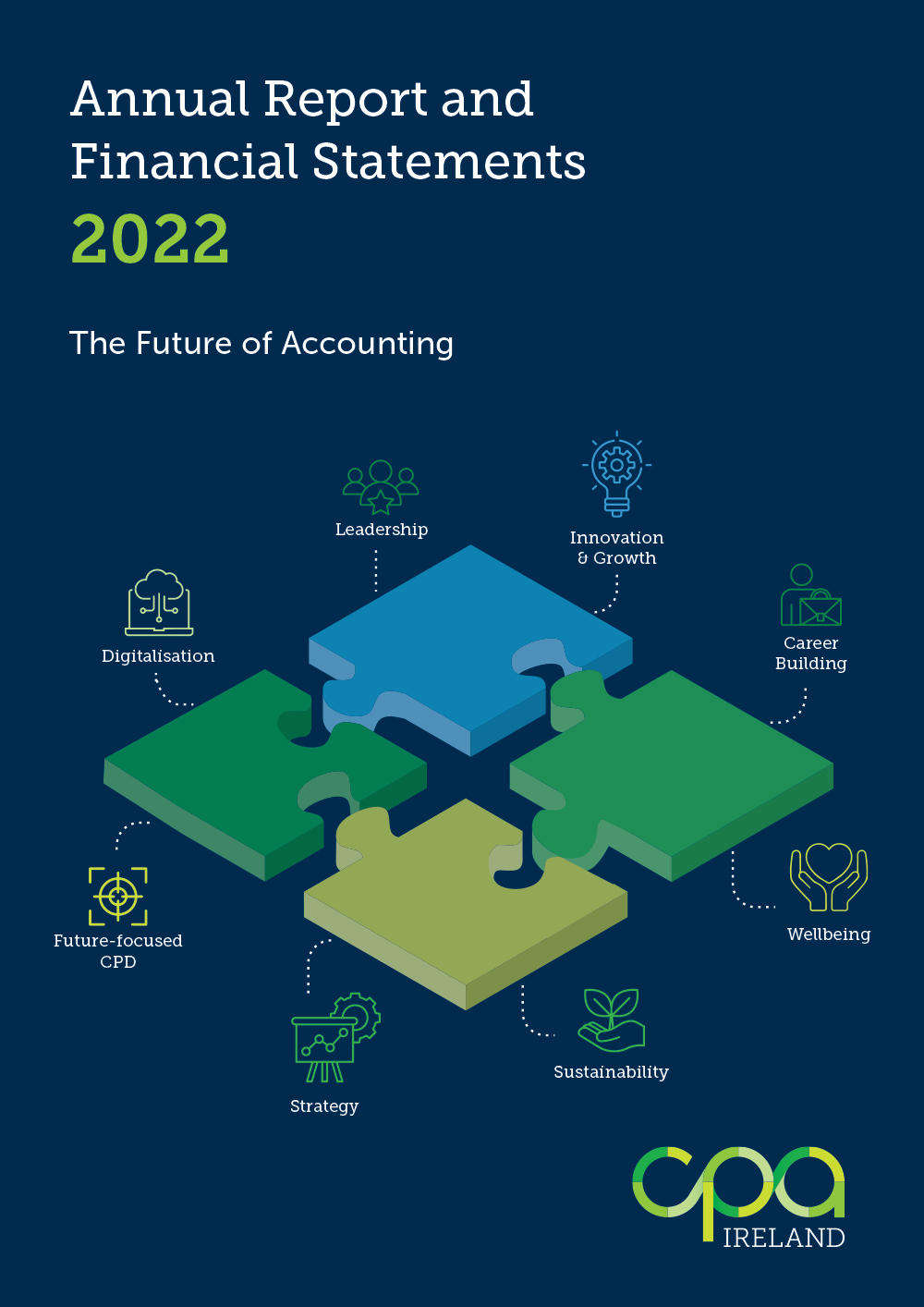
We have changed our bank account to Allied Irish Banks
Please inform your employer if they are currently paying your fees and ensure your own records are updated.
For those members who have not yet paid, please bring your account up to date as soon as possible, as subscriptions are now overdue.
It is also important to check for any outstanding invoices or anomalies with your account. View Cart is a good place to check. For Practice Firms, you should check any fees charged to firm.
CPD News
CPD News
The course recently had a full review to introduce new modules.
The new CTax course includes:
- New modules
- New content
- Introduction of new bitesize web-based learnings to complement each module
- New subject matter experts
- A new Client Advice lecture will be dedicated to case studies and exam questions to help bring the course together in preparation for the assessments.
We are delighted to offer a 10% Early Bird Discount off the cost of the course – enrol before 30th June 2023 to avail of this discount.
Key Details:
Method:
Dublin and Online via Live Streaming
CPD Credit:
50 hours (6 hours per module + 2 for VAT Webinar)
Cost: €1950

– Lisa Leonard, ACCA CTax
Student News
April 2023 Examinations
The CPA Ireland April 2023 Examination diet was completed using Cirrus online examination software and Proctorio Artificial Intelligence remote invigilation.
The results of these examinations were published on Friday 9 June 2023. Congratulations to all students who were successful in their examinations.
Cohort 1
This Cohort includes all students who completed their final exams from 2020 up to and including the April 2023 exam sitting.
Invitations to apply for membership have been issued to Cohort 1 applicants and the closing date for Application to Membership for students in Cohort 1 will be 5 August 2023.
Cohort 2
This Cohort includes only students who complete their final exams in August 2023.
Invitations to apply for membership will be issued after the results in August 2023 have been released on 13 October 2023. Closing date for Application to Membership for students in Cohort 2 will be 3 November 2023.
Information & Disclaimer & Publication Notices
It acts as a primary means of communication between the Institute and its Members, Student Members and Affiliates and a copy is sent automatically as part of their annual subscription. Accountancy Plus is published on a quarterly basis.
The Institute of Certified Public Accountants in Ireland, CPA Ireland is one of the main Irish accountancy bodies, with in excess of 5,000 members and students. The CPA designation is the most commonly used designation worldwide for professional accountants and the Institute’s qualification enjoys wide international recognition.
The Institute’s membership operates in public practice, industry, financial services and the public sector and CPAs work in over 40 countries around the world.
The Institute is active in the profession at national and international level, participating in the Consultative Committee of Accountancy Bodies – Ireland – CCAB (I) and together with other leading accountancy bodies, the Institute was a founding member of the International Federation of Accountants (IFAC) – the worldwide body. The Institute is also a member of Accountancy Europe, the representative body for the main accountancy bodies The Institute’s Offices are at 17 Harcourt Street, Dublin 2, D02 W963 and at Unit 3, The Old Gasworks, Kilmorey Street, Newry, BT34 2DH.
The views expressed in items published in Accountancy Plus are those of the contributors and are not necessarily endorsed by the Institute, its Council or Editor. No responsibility for loss occasioned to any person acting or refraining to act as a result of material contained in this publication can be accepted by the Institute of Certified Public Accountants in Ireland.
The information contained in this magazine is to be used as a guide. For further information you should speak to your CPA professional advisor. Neither the Institute of Certified Public Accountants in Ireland or contributors can be held liable for any error, or for the consequences of any action, or lack of action arising from this magazine.
Case Ref: Invest/08/21
A Disciplinary Tribunal convened on 22 September 2022, found the following charges of misconduct proven against John G. O’Riordan (otherwise known as Sean O’Riordan) of O’Riordan & Associates, 3rd Floor, Centre Park House, Centre Park Road, Cork:
- Bye law 6.5.1(e) in that in the course of carrying out his professional duties, he provided or purported to provide financial services in connection with a matter in which he had been engaged by a client and it is alleged that those services were inadequate and were not of the quality that could reasonably be expected of him.
- Bye Law 6.5.1 (f) in that he performed his professional duties inefficiently or incompetently to such an extent, or on such a number of occasions, as to bring discredit to himself, the Institute and the Profession of accountancy.
These charges of misconduct are proven in relation to the following complaints:
That in the course of conducting a liquidation:
- He failed to conduct the liquidation process in a proper and professional manner.
- He failed to submit the forms E3 to the CRO in a timely fashion at the appropriate.
- He failed to supply the complainant, as director and elected member of the Committee of Inspection with information on progress or details as required to be submitted on form E3 returns to CRO.
- That the Copy of the Form E5 on the completion of the liquidation was not correctly supplied to the complainant. Computer printout of figures provided to the complainant did not contain a complete breakdown on what monies were collected or paid out by the liquidator and contained serious discrepancies.
Following an appeal against the Orders of the Disciplinary Tribunal, an Appeal Tribunal varied some of the Orders of the Disciplinary Tribunal and ordered the following to take effect from 22 February 2023:
- Severe reprimand
- Fine of €20,000 (the first €5,000 to be paid within 6 months and the balance to be paid within 3 years thereafter)
- Contribution towards costs of €9,900 – payable within 12 months
In addition, Mr. O’Riordan is required to fully co-operate with facilitating a quality assurance review conducted by or on behalf of the Institute within 12 months.
The Tribunal noted an undertaking given by Mr. O’Riordan not to partake in insolvency work and it is a Condition of this Order that he comply with this undertaking for the remainder of his career.
Mr. O’Riordan agreed to give the Institute the file in respect of the only outstanding liquidation which he is acting qua liquidator in within two weeks of the date of this decision.
Failure to comply with the Orders above within the time periods specified shall result in a default Order being activated forthwith such that Mr. O’Riordan’s practicing certificate will be withdrawn.


